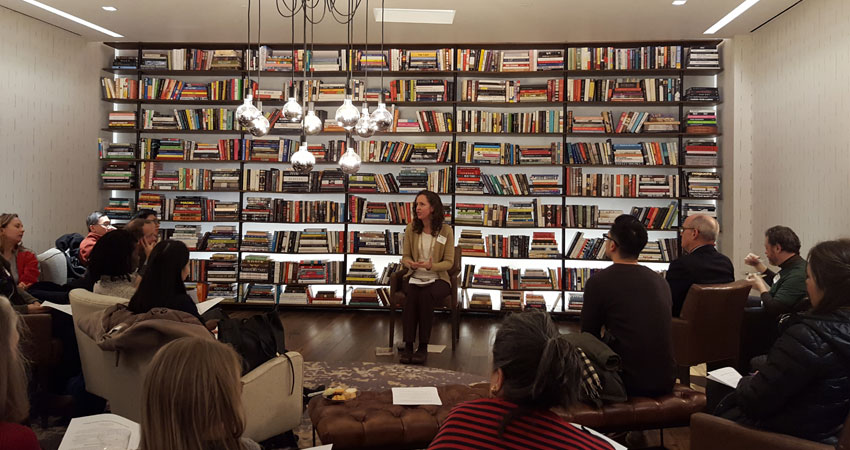Salon with Professor Amy Davis Abdallah
On Wednesday February 27, Christian Union New York hosted a salon on the important, though not overly popular, spiritual discipline of fasting. With Lent commencing on March 6, this discussion, led by Professor Amy Davis Abdallah of Nyack College, explored the biblical underpinnings of fasting, best practices, and its connection to Lent. Over thirty attendees were present.
Professor Davis suggested that one way of looking at the Fall is to see it as Adam and Eve breaking a partial fast, choosing a forbidden food over total reliance on God. Jesus then redeemed this wrong at the start of his ministry by successfully fasting, declaring before the tempter that “One does not live on bread alone, but by every word that comes from the mouth of God.”

For Davis, this is the heart behind the practice of fasting: to declare “my life doesn’t come from my food, but from God alone.”This typically looks like abstention from food, but it needn’t always. Denying yourself anything that you feel you need to function in daily life achieves this same heart posture. It is a sacrifice that says “My life is not dependent on this or anything else, but on God alone.”
The Bible contains many different examples of fasting, with a range of different purposes (from grief and repentance to strengthening and preparation), and somewhere between the completion of the Old Testament and Jesus’ birth, fasting went from being a response to crisis to being a habitual practice. The early church continued to fast habitually but also continued the idea of fasting as preparation, particularly for baptisms. This is how Lent began. The Easter Vigil was the early church’s primary occasion for baptisms, so the church would fast alongside those who were consecrating themselves in preparation for their baptisms. Today, Lent has remained as a church tradition even as baptism practices have changed.
Professor Davis first practiced Lent as a college student. Rather than food, she gave up some sleep in order to establish a daily devotional habit – a considerable challenge for a student – and that season became a transformative time in her walk with the Lord. She has regularly participated in Lent since. For Davis, Lent typically looks like abstention from food, though on one memorable year, she felt led to give up coffee – a sacrifice she hopes the Lord will never call upon her to make again!
After this salon, many remarked that they felt inspired to practice Lent for the first time. For any readers also looking to give Lent a try, or to begin fasting in general, we would encourage you to listen to the talk below to gain a more comprehensive understanding of the practice. We pray that it blesses you, and that the practice of this spiritual discipline draws you into a life more fully dependent on God alone.
Get Involved
If you would like to get involved with CU New York, please email: cunewyork@christianunion.com.


